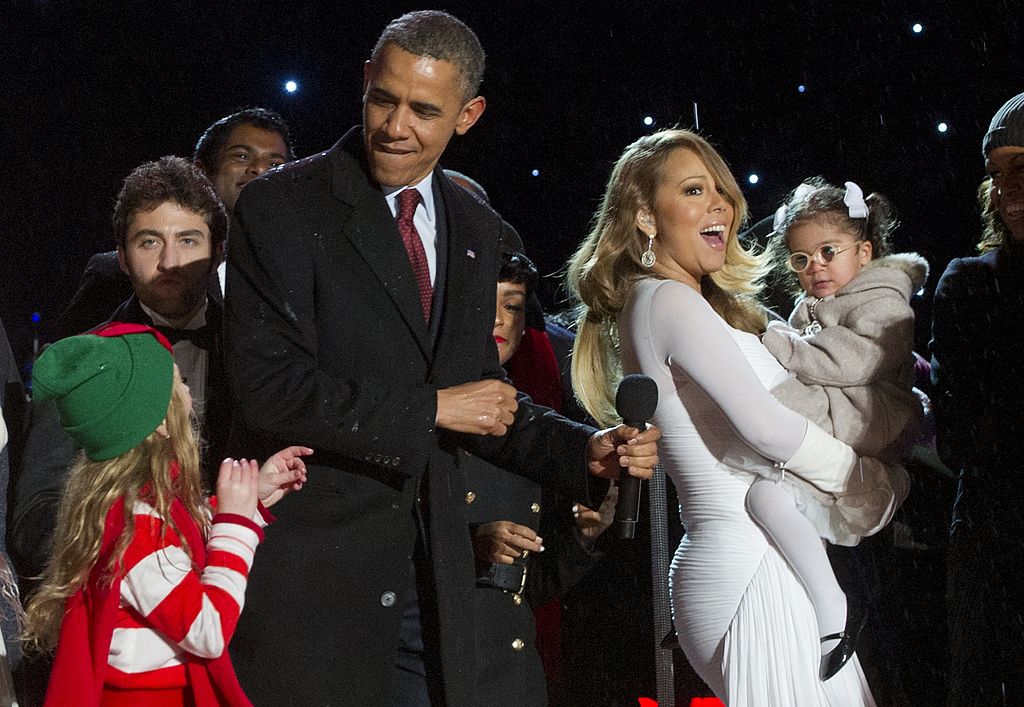Veep, Candidate, brat: Kamala Harris Fires Up Gen Z on Social Media
But will videos of coconut trees, Venn diagrams and other forms of ‘messaging memeology,’ as one pollster put it, push kids to vote?

This article is part of The 74’s EDlection 2024 coverage, which takes a look at candidates’ education policies and how they might impact the American education system after the 2024 election.
A few Saturdays ago, when political science professor Lindsey Cormack had former students over for a barbecue at her New Jersey home, she didn’t expect they’d be buzzing about the 2024 presidential race. It was July 20, and 81-year-old President Joe Biden was still the Democratic candidate, losing ground daily to former President Donald Trump, 78.
So Cormack, who teaches at Stevens Institute of Technology and just wrote a book on civic engagement, was surprised when they expressed excitement. They were “all on board” — with Kamala Harris, Biden’s vice president, who had yet to become Trump’s direct challenger.
No matter. They thought the VP was, in a word, hilarious — and worth their attention.
Harris’ 2023 “Coconut Tree” video had already gone viral. In it, she recounts her mother giving her sister and her “a hard time sometimes,” saying, “‘I don’t know what’s wrong with you young people. You think you just fell out of a coconut tree?’” Harris cracks up, then continues with her mother’s lesson: “‘You exist in the context of all in which you live and what came before you.’”
Cormack’s students not only knew the video — they could recite it from memory. She thought to herself, “O.K., there’s something happening here.”
What Cormack witnessed was the ascension of Harris in the minds and social media feeds of young people. It was the prequel to a new phenomenon: the candidate-as-meme, at a time when both candidates desperately need young people to pay attention to them. Whether it translates into votes from this stubborn demographic in November remains an open question.
At the moment, it seems to be working for Harris, 59, whose social media effort is driven by an army of volunteers creating a firehose of memes on her behalf.
By the time Biden dropped out of the race on July 21, Harris had actually been quietly colonizing young people’s feeds for weeks. Fans posted cleverly cut treatments of her speeches, her laugh, her dancing (in and out of the rain), even her love of Venn diagrams.
As early as July 6, one X user posted, “I’m ready to fall outta the coconut tree for you, girl. Stop playin.”
‘It’s hard not to love her’
For one fan, the attraction began much earlier.
Ryan Long, 22, a senior at the University of Delaware, discovered Harris in November 2016, when she won her Senate seat. She popped up on his cultural radar in earnest four years later, when she became Biden’s vice president. Her appearances often took on a life of their own, he recalled: She’d say “a lot of silly and amusing things” in official settings. “I’ve always found her so, so funny.”
Harris’ self-professed geek tendencies soon prompted him and his housemates to decorate a whiteboard with the saying, “I love Venn diagrams.” It stayed up for about a year. The hilarity of the “Coconut Tree” video made it “really popular on gay Twitter” about a year and a half before it hit the mainstream, he said.
Long admitted to not typically following politics. But by the beginning of July, when a poll in his X feed suggested that Harris had a better chance of beating Trump than Biden did, he got excited.
“It was a silly, unrealistic excitement,” he said. But that night, he spent about three hours cutting together his favorite bits of Harris footage.
why did I stay up till 3am making a von dutch brat coconut tree edit featuring kamala harris and why can’t I stop watching it on repeat pic.twitter.com/hqcmerD1Pb
— ryan (@ryanlong03) July 3, 2024
Long’s July 3 remix of Harris speaking, laughing and dancing has garnered about 4.3 million views on X and helped create a template for the genre. “She is a fresh face at a time that there [is] so much disillusionment in politics, especially among young people,” he said.
Now that she’s the Democratic nominee, she offers the potential to bring a lot of young people along for the ride, Long said.
She is a fresh face at a time that there (is) so much disillusionment in politics, especially among young people.
Ryan Long, University of Delaware student
In that sense, she is much like Trump, who “has this huge cult of personality. He’s able to make riffs, say things off the cuff, make people laugh, make people excited, make people sad, make people just feel their emotions. And I think Kamala Harris does that for a whole other subsection of voters.”
By comparison, Biden’s push to reach young voters via social media felt awkward and all but non-existent to many.
For his part, Trump has benefited from the efforts his own devoted fans, who have reveled in his ties to professional wrestling and his defiant fist pump after the attempt on his life last month. The campaign has also gotten a boost from a small group of creators on the right who have become a “shadow online ad agency” for his campaign, spending the past year producing similar content for the GOP nominee. The group, which calls itself Trump’s Online War Machine, operates anonymously, its memes “riddled with racist stereotypes, demeaning tropes about L.G.B.T.Q. people and broad scatological humor,” The New York Times observed last December.
‘Authentic and true’ narratives attract Gen Z
To be sure, the reaction to Harris on social media has been unprecedented. Jessica Siles, a spokesperson for the Gen-Z-led advocacy group Voters of Tomorrow, said she had stopped counting how many conversations she has had with people about what it means to be “brat.”
That adjective comes compliments of British singer Charli XCX, who on July 21 tweeted, “kamala IS brat,” defining the term as “that girl who is a little messy and likes to party and maybe says some like dumb things sometimes.” She’s honest, blunt — and a bit volatile.
It all adds up to a kind of authenticity “that young people really resonate with,” said Siles.
I think we're kind of uniquely qualified to be able to tell who's posting something authentically or not.
Jessica Siles, Voters of Tomorrow
Even U.S. Education Secretary Miguel Cardona tried to get in on the act, posting on X in the lime green color of the moment that “Defending public education is part of the essence of brat summer.” To some, it appeared, as the kids say, a little cringe. One critic, invoking the iconic adult-posing-as-a-teen scene from “30 Rock,” tweeted, “How do you do, fellow kids?”
Defending public education is part of the essence of brat summer. pic.twitter.com/ysyK9qVJ5c
— Secretary Miguel Cardona (@SecCardona) August 2, 2024
Most Gen-Zers were indeed kids the last time a meme-worthy candidate ran for president. Siles, 24, was just 8 years old when Barack Obama ran his first presidential campaign. She said seeing a candidate talk about who they are unapologetically while boasting impressive career accomplishments “is just super refreshing to young voters.”
Gen Z grew up with these. “So I think we’re kind of uniquely qualified to be able to tell who’s posting something authentically or not,” she said. Young people don’t take the time to create, edit, post and share videos of “people they’re not truly excited about.”

Harris began resonating with Siles after she watched a video of the vice president getting emotional talking about her mother’s cancer. Siles remembered that it “showed a different side that we don’t always see of elected officials and politicians that I thought was really powerful.”
In the three days after Harris announced her candidacy, Siles’ organization got more applications to join and start new chapters than in the prior two months.
The group, whose chief of staff is all of 16, made news earlier this year by making mischief in the race: It scooped up unused Web domain names for groups such as GenZforTrump.org and guided viewers to a new site that targets young voters in battleground states. It also launched a digital ad campaign on Instagram and Snapchat.
David Paleologos, director of the Suffolk University Political Research Center in Boston, said there’s no question that social media has trained young people’s attention on Harris, who needs the votes: Exit polls from 2020 suggest that Biden beat Trump by 24 percentage points among voters ages 18-29. Harris hasn’t quite reached those margins among potential young voters in the recent polling, he said, but she’s close — up by about 20 points.
In order to reach 2020 levels in the next three months, she’ll need a social media strategy of “messaging memeology,” Paleologos said, which strings together “a seemingly haphazard sequence of posts that paint a picture, much like the colorful stones in a mosaic.”
However, he said, one risk of that is staying power: “It only lasts until the next meme about someone else captures that young person’s short attention span.” Research also shows that young voters are the least participatory in elections.
Just like clockwork, since she announced Minnesota Gov. Tim Walz as her running mate on Aug. 6, the Walz memes have begun flowing.
‘I hate how I can feel the propaganda’
To be sure, not all young people are totally sold on the coconut memes or the high energy. In a recent TikTok, a 19-year-old user from southwestern Missouri who goes by the username “Meatball” looks into the camera and confesses, “I hate how I can feel the propaganda of the Kamala campaign working on me.”
In the video, posted July 24, she continues, “Part of me is like, ‘Yass queen, purr! Brat Summer! Kamala Harris!’ And then I’m like, ‘Oh my God, that’s a politician, actually. That’s the vice president of the United States.’ Like, I’m still going to vote for her, but I don’t like feeling like I want to vote for her.”
In an interview via text messages, Meatball, who asked to withhold her name for safety reasons, said she posted the video after getting “countless” Harris-related videos on her “For You” page — a few from Harris’ official account. “I wanted to see if anyone else was experiencing this disconnect between wanting to participate in something fun and not trusting politicians,” she said.
It’s safe to say they do: In three weeks, her video garnered 1.8 million views and more than 289,000 “likes.”
But Meatball said she wishes older generations understood that Gen Z’s opinions “aren’t less thought out just because we share them in unconventional ways” like TikToks. “Meme culture is complex and has been developing since the creation of the internet chat room. Just because an older person doesn’t understand what we’re saying doesn’t mean we aren’t saying anything at all.”
Long, the Delaware student who posted the X video of Harris, predicted the memes and videos will have a big effect.
He has worked in e-commerce marketing and has seen the power of social media to convert views into sales. “I think the same principle applies for elections: It’s going to turn people out. It’s going to get them excited.”
Get stories like these delivered straight to your inbox. Sign up for The 74 Newsletter

;)


